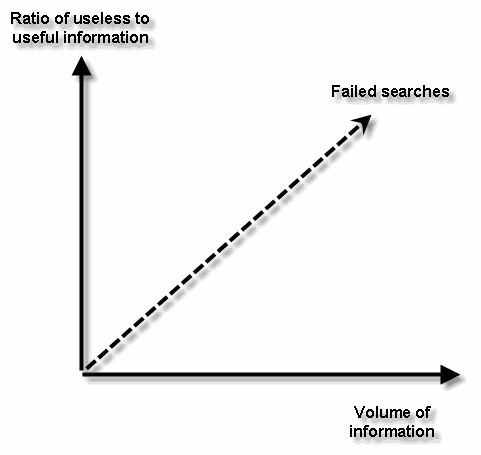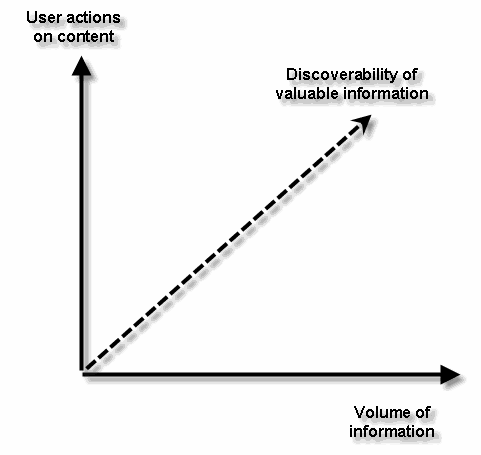A lot of people seem to be asking themselves, "What will happen next?"
The PageRank concept was very clever and very simple. It made finding things a hell of a lot more efficient than browsing a hierarchy, the PageRank predecessor. But the haystack is just too big to find ever smaller needles, and the ratio of useless to useful information out there is getting really ugly:

The hyperlink was a vote in the search-driven Internet. Now I'm dependent on a new currency - human action. The click is much more potent than the existence of a link. Even more potent than clicks are tags, ratings, comments and emailed URLs. A hyperlink is still a vote, but seeing some form of human action gives me much more confidence that a source has value.
So, the trick now is for content creators to figure out how to get users to act on their stuff. How do you get people to add that extra bit of value to your content that validates and then qualifies the value for other people? And then how do you expose the user-contributed value so that the right things get picked up from the right tools at the right time to reach the right people?

I won't predict I have the solution to this problem, nor do I have the answer to what's the next PageRank. I think encouraging people to tag, send, rate, blog about and comment on your stuff and then exposing the results of those actions is crucial in this next phase of the Internet's evolution. I also think understanding how the new crop of recommendation systems works may make or break a publisher who sits anywhere under the head of the long tail.
It makes sense when you look back historically on the Internet's evolution that there will be a new method for finding valuable information on the Internet soon if it doesn't already exist. Again, I wouldn't predict what that is, but you can be sure that you will need your users' help to cross that chasm when it's more obvious what it looks like.
Comments:
Re: What will be the next PageRank?
by
Anonymous
on Thu 23 Feb 2006 10:17 AM EST
I think the suggestion to tag, send, rate, blog about and comment on stuff and expose the results of these actions is a gift to special-interest, verticle, niche publishers who who often live in a walled community of potentially useful information. I suspect the reluctance on the part of some to embrace this dynamic model is more about imagination than technology.
